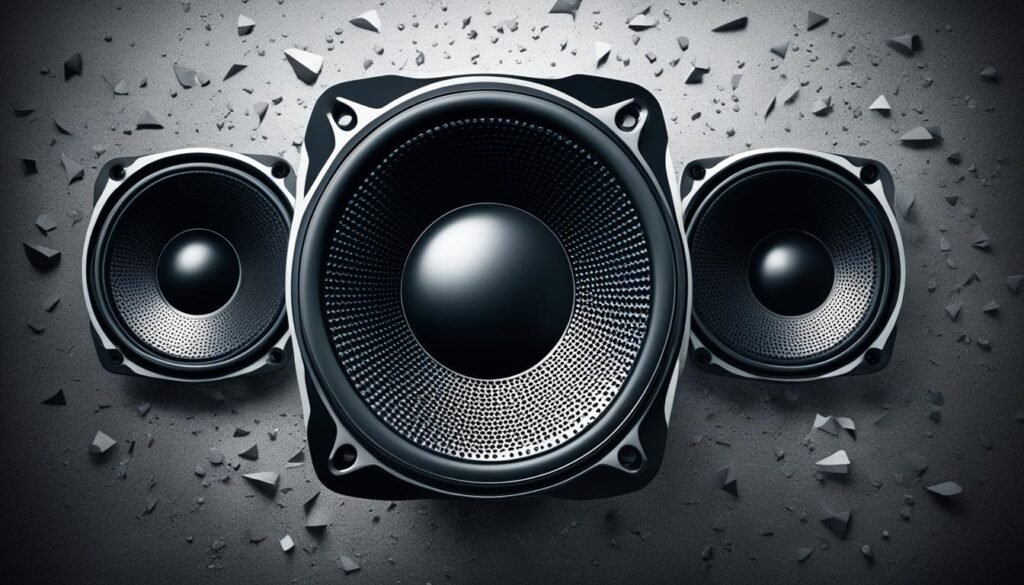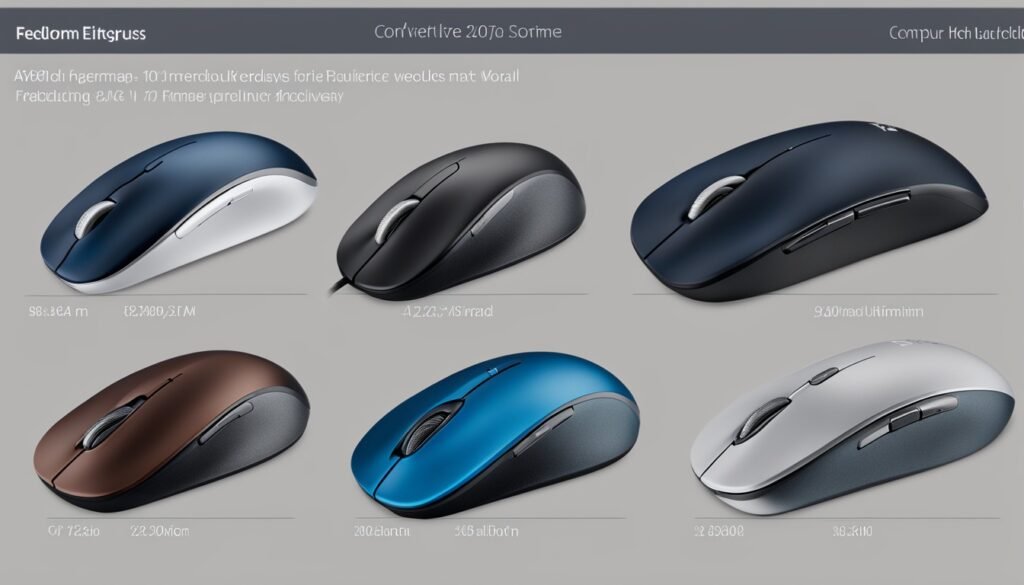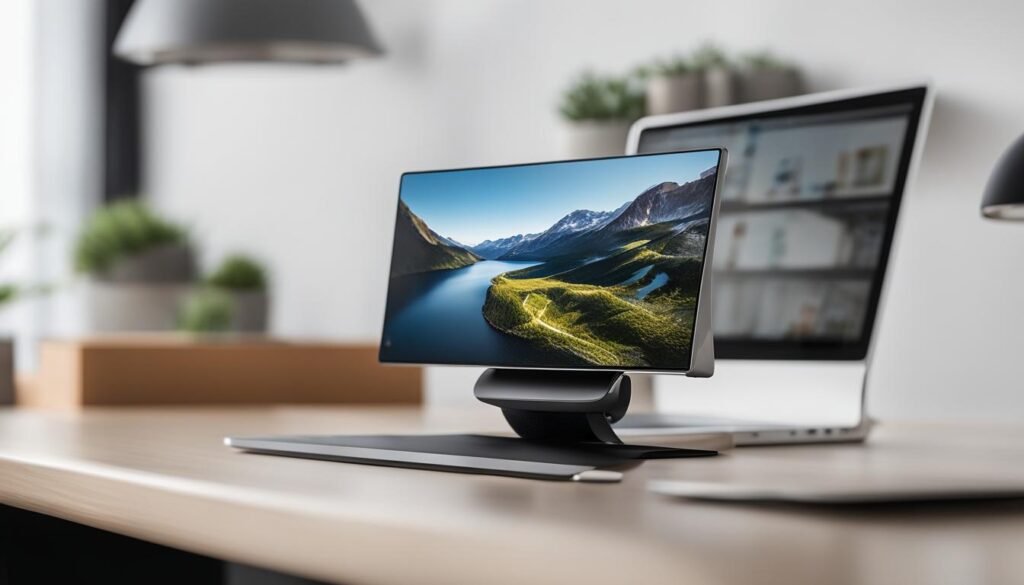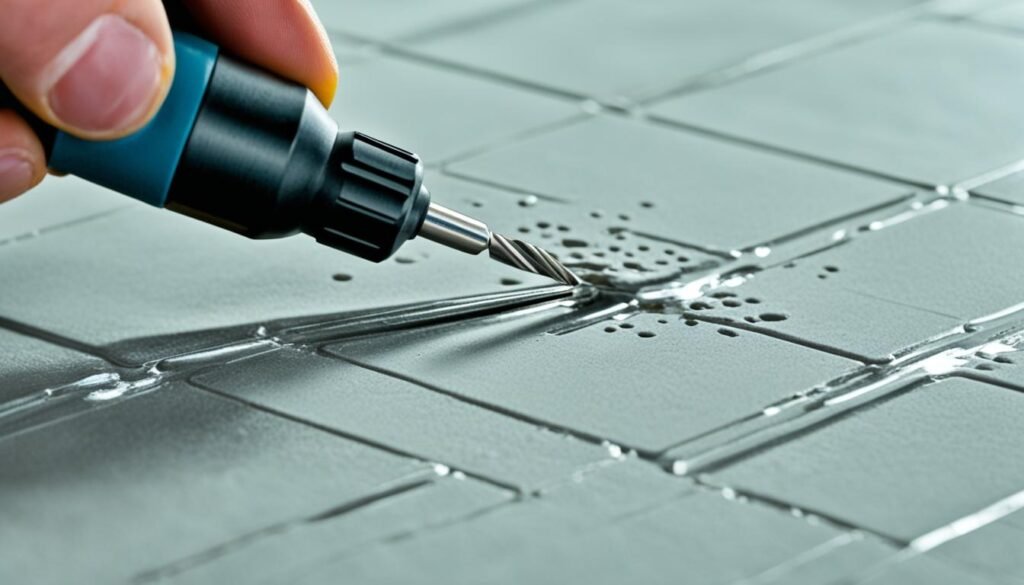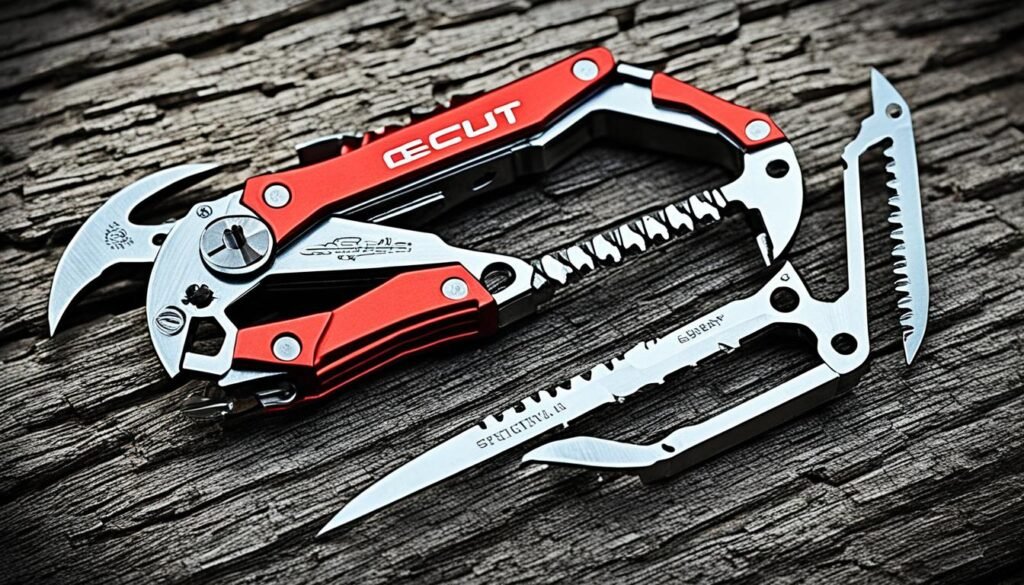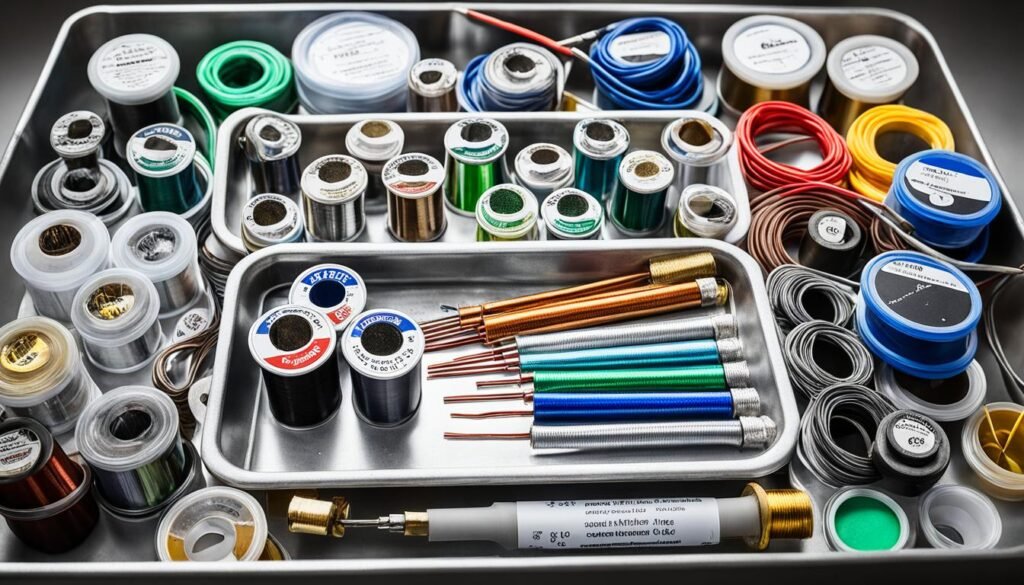The right microphone is essential for capturing exceptional vocals in the studio or live performances.
There are several factors to consider when choosing a microphone, including frequency range, sensitivity, polar pattern, and budget. Additionally, it’s crucial to assess your studio environment and determine if you’ll also be recording instruments. While versatile options are available, it’s important to note that no microphone is perfect for every situation.
In this article, we will explore some of the best microphones for vocals to help you make an informed decision based on your specific needs and preferences.
Whether you’re a professional singer, recording artist, or someone who enjoys singing, having a high-quality vocal microphone can significantly enhance your performance. An excellent vocal microphone captures your voice accurately and improves its tone and clarity, making your recordings or live shows shine.
Different vocal microphones are available, each with its characteristics and advantages. Some popular choices include studio microphones for vocals, condenser microphones for vocals, and dynamic microphones for vocals.
Studio microphones for vocals are designed to deliver clean and detailed sound reproduction, making them an excellent choice for recording vocals in a controlled environment.
Condenser microphones for vocals, on the other hand, offer a rich and clear sound with extended frequency response, making them suitable for capturing vocals and acoustic instruments in studio settings. They are often the go-to choice for professional recording studios.
Dynamic microphones for vocals are known for their durability, versatility, and ability to handle high sound pressure levels. They are commonly used in live performances, as they can withstand rough handling and are less feedback-sensitive. They are also ideal for singers who move around on stage.
When choosing a microphone for singing, it’s essential to consider your specific requirements, budget, and the intended use of the microphone. Whether you’re looking for a microphone for studio recordings or live performances, excellent options are available for every need and budget.
The following section will explore some top vocal microphones for recording studio environments. Keep reading to find the perfect microphone to capture professional-level sound in your studio recordings.
Top Vocal Microphones for Recording Studio
In the recording studio, having a high-quality vocal microphone is crucial for capturing professional-level sound. Here are some of the top choices for recording vocals in a studio setting:
Rode NT1
The Rode NT1 is renowned for its clean, detailed, and bright sound. It’s a versatile studio condenser microphone that excels at capturing vocals and acoustic guitars. Its XLR connection is compatible with most studio setups.
Shure SM7B
The Shure SM7B is an industry-standard dynamic microphone trusted by professionals for studio vocal recordings. It offers superior noise rejection, ensuring a clean and clear sound even in noisy environments.
AKG C414 XLII
The AKG C414 XLII is a premium studio condenser microphone with exceptional sound quality. It features nine switchable polar patterns, allowing flexibility for different recording situations.
AKG C214
The AKG C214 is a budget-friendly premium vocal microphone. It offers a rich and clear sound, making it an excellent choice for recording vocals in the studio.
Audio Technica AT2020
The Audio Technica AT2020 is an excellent budget option for those who still want a high-quality sound. It provides a clean and detailed sound, ideal for recording vocals in a studio environment.
Aston Microphones Origin
The Aston Microphones Origin stands out for its stylish design and sound quality. It’s a dynamic microphone that delivers a rich and clear sound, making it a popular choice for recording vocals in the studio.
Each of these vocal microphones offers different features and price ranges, allowing you to choose the best option that suits your recording needs and budget.
Top Vocal Microphones for Live Performances
Regarding live performances, you need a vocal microphone that can deliver clear and powerful vocals while providing durability and noise rejection. One of the top choices in this category is the Shure SM58. Known for its natural and accurate sound reproduction, the Shure SM58 is a classic dynamic vocal microphone professionals trust in the music industry.
The Shure SM58 is not only suitable for stage use but also for recording vocals in the studio. Its ability to reduce room noise ensures that your vocals remain clear and focused, even in challenging environments. Additionally, the Shure SM58 has a high sound pressure level (SPL), making it the perfect choice for singers who perform alongside loud instruments or in rock genres.
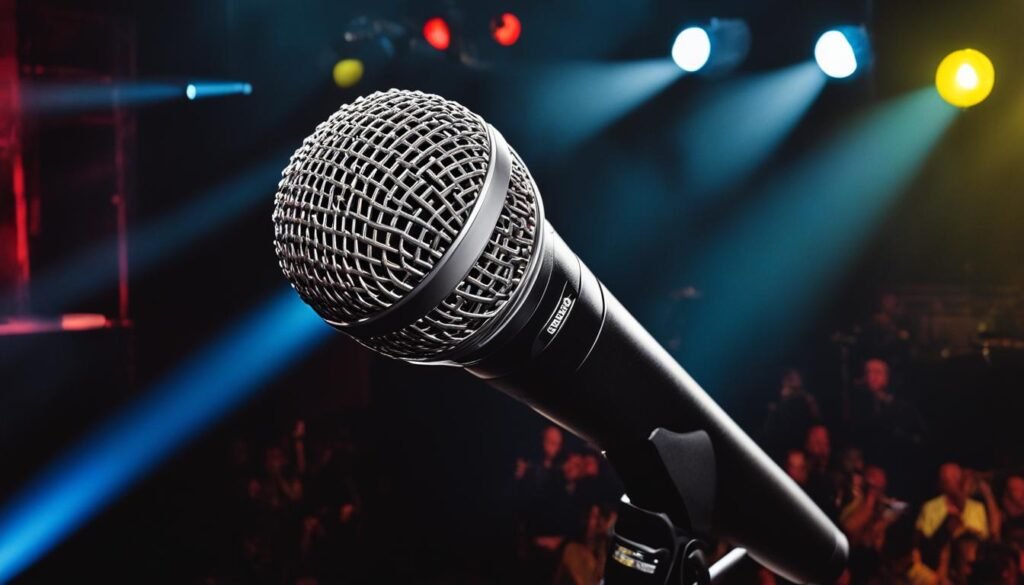
Portability is crucial for artists who frequently travel or perform at different locations. That’s why portable vocal microphones with USB connectivity are available. These microphones come with built-in preamps and are easy to carry, eliminating the need for additional equipment. They are perfect for singers who want convenience without compromising on sound quality.
Explore the options and choose a vocal microphone that suits your needs. Whether you’re a professional vocalist or just starting, investing in a high-quality microphone like the Shure SM58 will enhance your live performances and ensure your vocals shine on stage.
Considerations for Choosing the Right Vocal Microphone
When selecting a vocal microphone, several essential factors must be considered to ensure the best sound quality for your recordings or live performances. Weighing these considerations will help you decide and find the perfect microphone that suits your specific needs and preferences.
1. Intended Use
First and foremost, determine whether you need a microphone for studio recordings or live performances. Different microphones are designed with specific applications, such as dynamic microphones that excel in live settings or condenser microphones that deliver exceptional sound reproduction in the studio.
2. Polar Pattern
Understanding polar patterns is crucial when choosing a vocal microphone. Polar patterns determine how much sound is picked up from different directions. Common polar patterns include cardioid (which picks up sound from the front while rejecting sound from the sides and rear), omnidirectional (which captures sound from all directions), and figure-of-eight (which captures sound from the front and back while rejecting sound from the sides).
3. Frequency Response
A microphone’s frequency response refers to its ability to capture a wide range of frequencies. For vocals, it’s essential to choose a microphone with a frequency response that complements the tonal qualities of your voice. Look for a microphone that captures the lows and highs of your vocal range, ensuring a balanced and accurate sound reproduction.
4. Compatibility
Consider the compatibility of the microphone with your recording equipment and the recording environment. Check if the microphone requires additional adapters or accessories to connect to your recording setup. It’s also essential to ensure the microphone is compatible with your preferred recording software and hardware.
5. Portability
Portability may be essential for artists who frequently travel or perform on the go. Look for a lightweight, compact microphone and easy to transport. Portable microphones often have features like USB connectivity, making them versatile and convenient for on-the-go recording and performing.
Considering these considerations, you can confidently choose the right vocal microphone to elevate your performances and recordings.
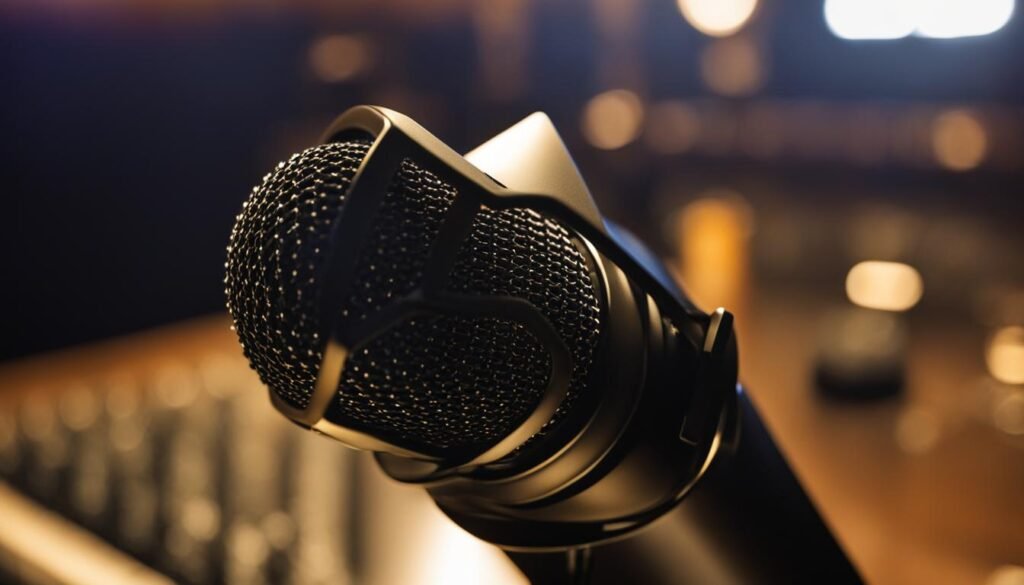
| Vocal Microphone Type | Best Use |
|---|---|
| Dynamic Microphone | Live Performances |
| Condenser Microphone | Studio Recordings |
| Ribbon Microphone | Warm and Rich Studio Recordings |
Different Types of Vocal Microphones
When choosing a vocal microphone, understanding the different types available is essential. Each type of microphone has unique characteristics and is ideal for specific applications.
Dynamic microphones are known for their robustness and ability to handle high sound pressure levels, making them perfect for live performances and recording loud instrumentals. These microphones are highly durable and can withstand the demands of the stage.
On the other hand, condenser microphones offer extended frequency response and high sensitivity, making them ideal for capturing vocals and acoustic instruments in professional recording studios. They are widely used in studio and home studio settings due to their versatility.
Although sensitive to background noise and physical shocks, Ribbon microphones provide a warm and rich sound quality that makes them popular for professional studio recordings. These microphones capture delicate nuances and deliver an intimate, vintage sound.
By understanding the differences between these microphone types – dynamic, condenser, and ribbon – you can choose the one that best suits your specific needs, whether you are recording in a professional studio or setting up a home studio for your vocal recordings.
Author
-

Hey there! I'm Andrew Reed, and I live for the thrill of writing reviews. Dive into my world at bestfordaily.com, where I unpack stories behind products and experiences. I'm all about sharing my unique take on things, infusing each review with my youthful enthusiasm and a dash of social flair. Join me on this exciting journey—I promise you won't just read reviews; you'll experience them!
View all posts

